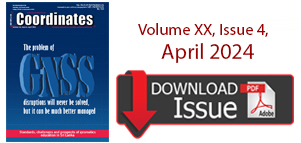| Galileo Update | |
GALILEO UPDATE
UK may lose access to Galileo after Brexit
The United Kingdom may be cut off the new EU global positioning system (GPS) Galileo, which has been developed with active participation of British companies, and will have to hold separate negotiations to obtain access to the system after London leaves the European Union, media reported.
“There is technology there reserved for member states to use for public services, and the UK could be locked out. I’m sure that a deal will be done, and the UK could pay its whack and get access, but it’s just another part of Brexit that no one’s actually thought about,” Scottish National Party Member of Parliament George Kerevan was quoted as saying by the Independent.
The Galileo system is a joint project between the European Union and the European Space Agency (ESA), autonomous from the block. According to the media report, Britain will need to work out a third-party agreement with the European Union to conserve its participation in the project, like Norway and Switzerland, who brokered their deals and now carry out project-specific work for the block. https://sputniknews.com
Falsifying Galileo satellite signals will become more difficult
Researchers from the Department of Electrical Engineering at KU Leuven (University of Leuven, Belgium) have designed authentication features that will make it even more difficult to send out false Galileo signals. Navigation systems are based on satellites that send out signals, including their location. The distance to four or more satellites makes it possible to determine someone’s geographical position and time. But this process may go wrong when hackers send out signals of their own that drown out the real ones. As the authentic signals are blocked, the position information for the navigation system is no longer correct.
Professor Vincent Rijmen and doctoral student Tomer Ashur from the Department of Electrical Engineering (ESAT) at KU Leuven have now advised the European Commission on ways to make Galileo signals more difficult to falsify. Their authentication method involves electronic signatures, similar to methods used for online banking.
To avoid delaying the launch of Galileo the researchers could only use the remaining ‘bits’ in the signals for authentication purposes. “This is why we support the TESLA method for electronic signatures,” Professor Rijmen explains. “TESLA signatures fit into 100 bits. They quickly expire, but this is not a disadvantage in the case of satellite navigation because the location is authenticated every 30 seconds or less anyway.”
The method still needs to be tested and validated before it can be made available to the general public. https://www.eurekalert. org/pub_releases/2017-02/ kl-fgs020917.php











 (No Ratings Yet)
(No Ratings Yet)




Leave your response!